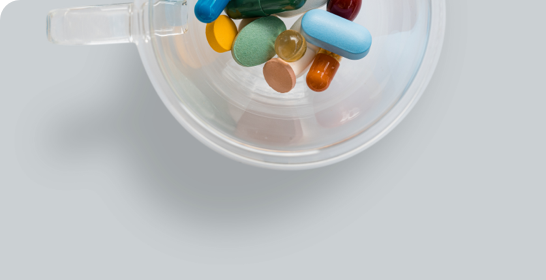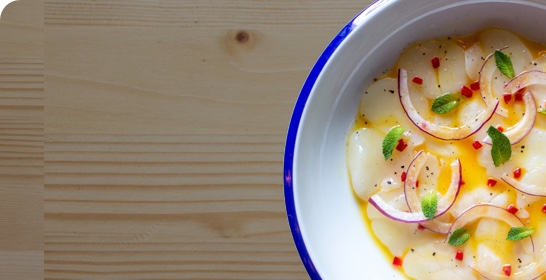We use cookies to make your experience better. To comply with the new e-Privacy directive, we need to ask for your consent to set the cookies. Learn more.
FlaviPure - Quercetin dihydrate [ex-Sophora japonica] powder extract
Synonym(s):
- 2-(3,4-Dihydroxyphenyl)-3,5,7-trihydroxy-4H-1-benzopyran-4-one dihydrate, 3,3′,4′,5,7-Pentahydroxyflavone dihydrate
- CAS Number: 6151-25-3
- EC Number: 204-187-1
- Chemical Formula: C15H10O7.2H2O
- Molecular Weight: 338.27 g/mol
FlaviPure - Quercetin dihydrate [ex-Sophora japonica] powder extract
Key Facts
- FlaviPure is a premium quality Quercetin product extracted from the Sophora Japonica flower
- FlaviPure is the Dihydrate form of Quercetin which has been shown to have the highest bioavailability of all quercetin forms.
- FlaviPure is standardised to no less than 98.0% Quercetin [UV - On anhydrous basis]
Background
FlaviPure is obtained from the flower of Sophora Japonica. Sophora Japonica grows in tropical areas and every part of the plant is used in traditional Asian medicine. The flowers of contain the bioflavonoid, that is also found in some fruits and vegetables, known as quercetin. While there are multiple quercetin products on the market today, many of these contain various forms of quercetin including glycosides, aglycone and rutinoside versions. However, it has been shown that of all quercetin forms, dihydrate, like that in FlaviPure, is the most bioavailable.Quercetin has been found to have beneficial effects including free radical scavenging, antioxidant and anti-inflammatory properties.
At Present we have the following variants of FlaviPure
FlaviPure - Quercetin dihydrate [ex-Sophora japonica] powder extractFlaviPure DC - Quercetin dihydrate [ex-Sophora japonica] DC granular powder extract
Chemistry
Quercetin belongs to the polyphenolic class. It has five hydroxyl groups on C6-C3-C6 backbone structure, in particular a 3-OH group on the pyrone ring.Quercetin Dihydrate
CAS - 6151-25-3Molecular Formula - C15H14O9
Molecular Weight – 338.27 g/mol
IUPAC - 2-(3,4-dihydroxyphenyl)-3,5,7-trihydroxychromen-4-one;dihydrate
Health Benefits
Anti-inflammatory
Chronic inflammation is harmful and contributes to many negative health conditions. Numerous studies have shown that quercetin can aid in the reduction of inflammation through decreasing levels of pro-inflammatory cytokines such as TNF-α, IL-1β and IL-6 and increasing levels of the anti-inflammatory cytokine IL-10 (Carvalho et al., 2010).Elevated C-reactive protein levels, an inflammatory risk factor, are associated with many disease states such as heart disease, obesity and lupus. Quercetin intake has also been shown to significantly decrease levels of C-reactive protein (Askari et al., 2012).
Antioxidant
Quercetin is a powerful antioxidant, due to its chemical structure. Of all flavonoids, quercetin has been found to be the most potent ROS (reactive oxygen species) scavenger (Boots et al., 2008), as well as being a more potent antioxidant than other nutrients such as vitamin C, vitamin E and beta carotene (Dong et al., 2014).Anticancer
One of the main focuses of quercetin research has been around its anticancer properties which include antiproliferative effects, growth factor suppression, and antioxidant effects (David et al., 2016). Quercetin has potent anticarcinogenic properties and has shown to contribute to inducing apoptosis and therefore decreasing growth of tumour cells in the brain, liver, colon, and other tissues, while also inhibiting the spread of cancer cells (Akan & Garip, 2013; Vásquez-Garzón et al., 2009; Tang et al., 2020).Cardiovascular Health
Quercetin exhibits multiple positive effects on the cardiovascular system. Numerous studies have found that the daily ingestion of quercetin significantly reduces blood pressure levels, this is thought to potentially be down to quercetin improving blood flow through exhibiting vasorelaxant properties (Serban et al., 2016).As well as this, daily quercetin intake can reduce blood glucose levels in people with metabolic syndrome which can help decrease numerous negative health effects (Ostadmohammadi et al., 2019).
Quercetin has also shown to exhibit anti-haemorrhagic effects, due to it inhibiting platelet aggregation and having a positive benefit on capillary integrity and endothelium health (Chen & Hsieh, 2010).
Additionally, it can also protect against coronary heart disease and reduce the risk of mortality caused by low-density lipoprotein (LDL).
Neuroprotection
Quercetin exhibits neuroprotective effects that are linked to its actions as an antioxidant and an anti-inflammatory agent. Quercetin can exert multiple beneficial effects on the vascular system which can lead to in cerebrovascular blood flow and are capable of changing neuronal morphology causing neurogenesis and angiogenesis. In addition to that, it also has the potential to protect neurons against injury induced by neurotoxins.Quercetin has been found to protect brain cells against oxidative stress, which damages tissue leading to Alzheimer and other neurological conditions (Lakhanpal & Rai, 2007). It also has additional ability to suppress neuroinflammation and promotes memory, learning, and cognitive functions. Flavonoids are also found to exhibit protective features capable of preventing more serious neurodegenerative diseases and forms of cerebrovascular disease associated with dementia and stroke (Chen & Hsieh, 2010; Youdim & Joseph, 2001).
Natural Antihistamine
Quercetin naturally restricts the release of histamine in the body which can help to relieve allergy symptoms in conditions such as hay fever (Mlcek et al., 2016).Anti-Aging
As men age, their testosterone levels decrease, quercetin ingestion has shown to potentially reduce this decline in testosterone through interaction with the testes (Ciftci et al., 2012).References
- Akan, Z. and Garip, A., 2013. Antioxidants May Protect Cancer Cells from Apoptosis Signals and Enhance Cell Viability. Asian Pacific Journal of Cancer Prevention, 14(8), pp.4611-4614.
- Askari, G., Ghiasvand, R., Feizi, A., Ghanadian, S. and Karimian, J., 2012. The effect of quercetin supplementation on selected markers of inflammation and oxidative stress. Journal of Research in Medical Sciences, 17(7), pp.637-41.
- Boots, A., Haenen, G. and Bast, A., 2008. Health effects of quercetin: From antioxidant to nutraceutical. European Journal of Pharmacology, 585(2-3), pp.325-337.
- Carvalho, K., Morais, T., Melo, T., Brito, G., Andrade, G., Rao, V. and Santos, F., 2010. The Natural Flavonoid Quercetin Ameliorates Cerulein-Induced Acute Pancreatitis in Mice. Biological & Pharmaceutical Bulletin, 33(9), pp.1534-1539.
- Chen, H. and Hsieh, C., 2010. Effects of Sophora japonica flowers (Huaihua) on cerebral infarction. Chinese Medicine, 5(1), p.34.
- Ciftci, O., Aydin, M., Ozdemir, İ. and Vardi, N., 2011. Quercetin prevents 2,3,7,8-tetrachlorodibenzo-p-dioxin-induced testicular damage in rats. Andrologia, 44(3), pp.164-173.
- David, A., Arulmoli, R. and Parasuraman, S., 2016. Overviews of biological importance of quercetin: A bioactive flavonoid. Pharmacognosy Reviews, 10(20), p.84.
- Dong, Y., Wang, J., Feng, D., Qin, H., Wen, H., Yin, Z., Gao, G. and Li, C., 2014. Protective Effect of Quercetin against Oxidative Stress and Brain Edema in an Experimental Rat Model of Subarachnoid Hemorrhage. International Journal of Medical Sciences, 11(3), pp.282-290.
- Lakhanpal, P. and Rai, D., 2007. Quercetin: A Versatile Flavonoid. Internet Journal of Medical Update - EJOURNAL, 2(2).
- Mlcek, J., Jurikova, T., Skrovankova, S. and Sochor, J., 2016. Quercetin and Its Anti-Allergic Immune Response. Molecules, 21(5), p.623.
- Ostadmohammadi, V., Milajerdi, A., Ayati, E., Kolahdooz, F. and Asemi, Z., 2019. Effects of quercetin supplementation on glycemic control among patients with metabolic syndrome and related disorders: A systematic review and meta‐analysis of randomized controlled trials. Phytotherapy Research, 33(5), pp.1330-1340.
- Serban, M., Sahebkar, A., Zanchetti, A., Mikhailidis, D., Howard, G., Antal, D., Andrica, F., Ahmed, A., Aronow, W., Muntner, P., Lip, G., Graham, I., Wong, N., Rysz, J. and Banach, M., 2016. Effects of Quercetin on Blood Pressure: A Systematic Review and Meta‐Analysis of Randomized Controlled Trials. Journal of the American Heart Association, 5(7).
- Tang, S., Deng, X., Zhou, J., Li, Q., Ge, X. and Miao, L., 2020. Pharmacological basis and new insights of quercetin action in respect to its anti-cancer effects. Biomedicine & Pharmacotherapy, 121, p.109604.
- Vásquez-Garzón, V., Arellanes-Robledo, J., García-Román, R., Aparicio-Rautista, D. and Villa-Treviño, S., 2009. Inhibition of reactive oxygen species and pre-neoplastic lesions by quercetin through an antioxidant defense mechanism. Free Radical Research, 43(2), pp.128-137.
- Youdim, K. and Joseph, J., 2001. A possible emerging role of phytochemicals in improving age-related neurological dysfunctions: a multiplicity of effects. Free Radical Biology and Medicine, 30(6), pp.583-594.
Explore your sector
Vita Actives manufacture, source, stock and distribute the highest quality bulk ingredients for pharmaceutical, nutraceutical, cosmeceutical and veterinary finished product manufacturers. We also supply tailor-made raw materials and finished nutritional supplements.




